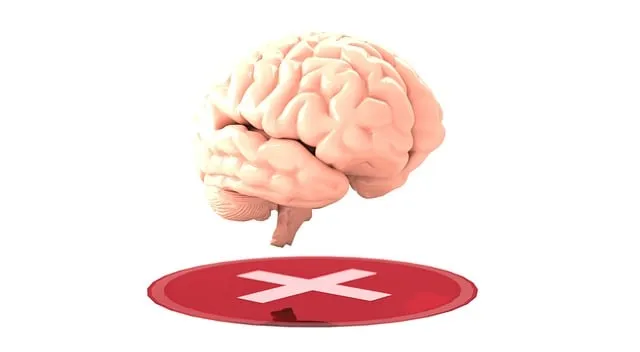Mental wellness self-assessment tools, modeled after Kaiser Permanente's comprehensive services at Greenwood Village, empower individuals to manage their emotional well-being through evidence-based practices like CBT and mindfulness. These tools help users understand their emotional patterns and triggers, while enhancing cultural competency among healthcare providers for personalized care. By integrating emotional regulation and resilience building, Kaiser Permanente creates holistic environments that foster the connection between physical and mental health. Their user-friendly assessment platforms, incorporating strategies for self-care and empathy building, offer tailored recommendations based on diverse individual needs within the community.
Mental wellness self-assessment tools play a pivotal role in promoting individual well-being. This article delves into the development of such tools, highlighting key strategies adopted by organizations like Kaiser Permanente and their implementation at Greenwood Village. We explore understanding mental wellness, integrating evidence-based practices, designing user-friendly platforms, and refining through rigorous testing. By examining these components, we aim to enhance access to effective self-assessment resources for better mental health outcomes.
- Understanding Mental Wellness Self-Assessment Tools
- Kaiser Permanente Mental Health Approach
- Integrating Evidence-Based Practices
- Designing User-Friendly Assessment Platforms
- Testing and Refining the Tools at Greenwood Village
Understanding Mental Wellness Self-Assessment Tools

Mental wellness self-assessment tools play a pivotal role in empowering individuals to take charge of their mental health. These tools, designed to evaluate and track one’s emotional well-being, are valuable resources for people seeking to understand and manage their mental state better. Similar to how Kaiser Permanente mental health services at Greenwood Village offer comprehensive care, these self-assessment tools serve as a gateway to personal awareness, enabling individuals to identify areas of concern and make informed decisions about their wellness.
By utilizing evidence-based methods, such as those incorporated in mood management techniques or confidence-boosting exercises, these assessments help users gain insights into their emotional patterns and triggers. Furthermore, they foster cultural competency among healthcare providers by promoting an understanding of diverse mental health experiences. This holistic approach ensures that mental wellness self-assessment tools not only assist individuals but also equip healthcare professionals with the knowledge to deliver more personalized and effective care.
Kaiser Permanente Mental Health Approach

The Kaiser Permanente Mental Health Approach, based in Greenwood Village, offers a comprehensive framework for understanding and enhancing mental wellness. This approach emphasizes a holistic view of mental health, acknowledging that emotional regulation and resilience building are integral components of overall well-being. By combining evidence-based practices with a patient-centered focus, Kaiser Permanente aims to create supportive environments that foster both physical and mental health integration.
The organization has been at the forefront of public awareness campaigns development, promoting open conversations about mental health challenges and destigmatizing these discussions. This proactive stance not only encourages individuals to seek help but also contributes to a broader cultural shift in how society perceives and addresses mental wellness issues. Such initiatives reflect Kaiser Permanente’s commitment to not just treating symptoms but empowering individuals to take charge of their mental health through education, support, and accessible resources.
Integrating Evidence-Based Practices

Integrating evidence-based practices is a cornerstone in developing effective self-assessment tools for mental wellness. Organizations like Kaiser Permanente mental health in Greenwood Village have pioneered approaches that focus on both clinical validity and user-friendliness. By adopting established psychological theories and techniques, these tools can accurately assess various aspects of mental health, including emotional well-being promotion techniques and social skills training. This ensures that individuals receive tailored recommendations for improving their self-care routine development for better mental health.
For instance, incorporating cognitive-behavioral therapy (CBT) principles in self-assessment platforms can help identify negative thought patterns and provide users with strategies to challenge and reframe them. Similarly, mindfulness-based interventions have shown promise in enhancing emotional regulation and reducing stress levels, making them valuable components of comprehensive mental wellness assessments. These evidence-based practices not only ensure the reliability of the tools but also empower individuals to take charge of their mental health through personalized insights and actionable steps.
Designing User-Friendly Assessment Platforms

Designing user-friendly assessment platforms is a critical step in developing effective mental wellness self-assessment tools, especially considering the growing demand for accessible and convenient mental health services, such as those offered by Kaiser Permanente mental health Greenwood Village. These platforms should be intuitive, ensuring users can easily navigate through various modules to assess their mental well-being. Incorporating simple and clear language, along with visually appealing designs, can enhance user experience and encourage consistent engagement.
For instance, integrating features like Mindfulness Meditation sessions or Communication Strategies exercises within the platform can provide users with practical tools to manage stress and improve interpersonal relationships. Additionally, including sections on Self-Care Practices can empower individuals to take proactive measures for their mental wellness. By balancing usability, content relevance, and interactive elements, assessment platforms can become valuable resources that foster mental health awareness and resilience.
Testing and Refining the Tools at Greenwood Village

At Greenwood Village, the development of mental wellness self-assessment tools has taken a significant step forward through rigorous testing and refining processes. Kaiser Permanente’s expertise in mental health services has been instrumental in this journey, ensuring that the tools are both effective and accessible. The initial phase involved gathering feedback from a diverse range of users, including individuals seeking better mental health, healthcare professionals, and community members, to understand their needs and preferences.
This user-centric approach led to the integration of various features, such as self-care routine development for better mental health and empathy building strategies, into the assessment tools. By combining qualitative and quantitative data, the team could identify areas for improvement, enhancing the overall resilience-building aspect of the program. The result is a refined set of assessments that not only accurately gauge mental wellness but also provide personalized recommendations for improvement, catering to the unique needs of each individual in the Greenwood Village community.
Mental wellness self-assessment tools are valuable resources for individuals to take control of their mental health. As demonstrated by Kaiser Permanente’s approach and refined at Greenwood Village, integrating evidence-based practices into user-friendly platforms can significantly enhance access to care. These tools not only facilitate early detection but also empower users with actionable insights for improved well-being. Continuing to develop and refine these resources is essential in meeting the evolving needs of individuals seeking mental health support.






